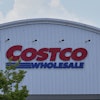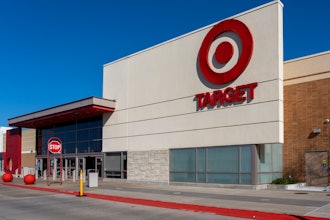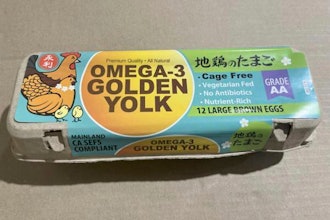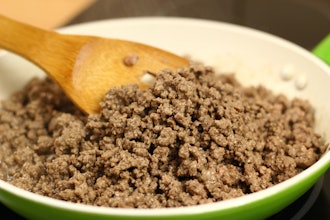
Nationwide recalls, the bird flu outbreak and ongoing egg shortages are reshaping the food industry. As a manufacturer or affiliated company, even small changes could have a big impact without a proper risk management strategy.
Aon is a global risk management brokerage and human capital firm. Alan Ingrassio, a partnership placement leader at Aon, has worked with food manufacturers for more than 15 years, specializing in the risk and insurance side of the business.
Most Read on Food Manufacturing:
- Pasta Manufacturer to Open First U.S. Plant in Central Pennsylvania
- Proposed Rules Would Require Nutrition Info, Allergen Warnings on Alcohol Labels
- General Mills Unveils Progresso Brand 'Soup Drops'
- Long Island’s Last Duck Farm Weighs Closure After Outbreak Kills Entire Flock
Ingrassio recently spoke with Food Manufacturing about food recall response tactics, including the importance of a proper recall response plan, as well as insurance coverage options.
Devon Verbsky (DV): How do manufacturers manage a food recall response when it happens?
Alan Ingrassio (AI): Food recalls begin by making sure you have a plan in place. When a food recall happens, if you're not prepared and you don't know how you're going to respond to it, it's probably too late and you're going to have to get very aggressive. You'd additionally probably have to get outside consultation. So, when you're building that risk management program, you want to make sure you have different phases for each type of class of recall.
For food manufacturing, let's say a beverage gets contaminated. You need to have a way of communicating with all of your different distribution channels to let them know what happened, and your channels need to be prepared to communicate with you. Government agencies are working with retail stores, etc. That’s where you can start to enact that plan. But why do we need to take [the recalled product] back? It's so the second half of the recall is taking place in making sure we know that we are pulling back and that our product is now safe. Reputation is important, and you need to be able to notify the community, however large your customer base is. This is the contaminated item, this lot of items is still missing. We need to ensure these items are not consumed—if you have them, send them in.
DV: Who are the main decision makers for food recalls?
AI: Depends on what it is.
There are government agencies. They're saying these foods cannot go out, they can't be sold. Also, business is saying the same because, as a manufacturer, if I'm sending out a product and I know it's contaminated, that's going to destroy my brand if I don't get that product back in time. So, it depends on what the situation is, how big it's gotten, and if the business is doing their due diligence and doing their fiduciary to the community. If they're not, the government's going to step in and tell them they have to recall [the product].
If you think about this bird flu that's happening, we've put down 20 million laying hens due to bird flu. That's having a huge impact on the cost of eggs for us and the shortage of eggs, as well as the reproduction of life. That's an interesting situation to be in because you could, on one hand, say that if we don't do that, this could be an epidemic. We have to be extreme about that [response], and that's where a strong risk management program comes into place for the farmers. This takes place with vaccination, storing the birds, making sure they're not getting contaminated by wild birds, and quarantining new birds that come in.
DV: What does a full risk response strategy look like?
AI: Risk response starts with the plan before it happens. Making sure that you have a diversified supply chain. If I'm going to respond, I need to make sure I have a backup plan when I can’t use that product.
I need to make sure that I'm vetting all of my distributors and I need to make sure I have some sort of stock. With food it can be challenging because not everybody's selling frozen foods that you can just freeze. Storing ingredients at mass quantities isn't always possible. It's about having those contingent backup plans, and then it's making sure you have strength within your contracts. The best way to respond to this type of situation where you have a recall is to make sure that you have a contingency within the contracts with your suppliers to have some sort of backup. Maybe that's supporting you in finding another relationship. Maybe it's understanding their contingencies. Maybe it's making sure that there's a cost in these types of recall situations.
DV: What are the types of recall claims that insurance covers?
AI: If we think about the bird flu recall, because it's so new, carriers are actually starting to try and remove that as an exclusion within policies. So that's really risk management, making sure that you have plans for that. But some claims like accidental product contamination, which could affect any industry, are really prevalent in food. It's something you want to consider—especially in food, beverage, even skin treatments and cosmetics—that's an important coverage to make sure your product policy has.
Another interesting one, malicious product tampering. That's when you have contamination or sabotage on a product that can harm consumers, and these types of contaminations are going to damage the reputation. Anytime there's a recall, everyone is looking for what happened. But when it happens maliciously, you don't know what's happening until you figure it out. It's really making sure you have a public relations plan on the recall and that you're actively showing the community that you're trying to pull things back. But this insurance policy is going to be frequent in any industry that has a wide net of vendors or distribution networks.
DV: Would you say this type of coverage is more common now?
AI: The accidental product contamination is becoming more prevalent and seeing a lot more chains of commerce. Anybody can begin selling food, so we're seeing a lot of this contamination happen more frequently. Malicious product tampering is an important coverage to have as a larger organization. It's also important to have, when you think about your human capital and how you manage your people, because that's typically where it comes from.
No matter how big your business is in the manufacturing space, it's really important to speak with a professional about your risk management. I'm not talking about a broker that is going to sell you an insurance policy. It's instead speaking with somebody that understands manufacturing risk and ways to mitigate losses and to reduce exposure. That's going to go a long way in reducing premium costs and losses.
Click here to subscribe to our daily newsletter.























